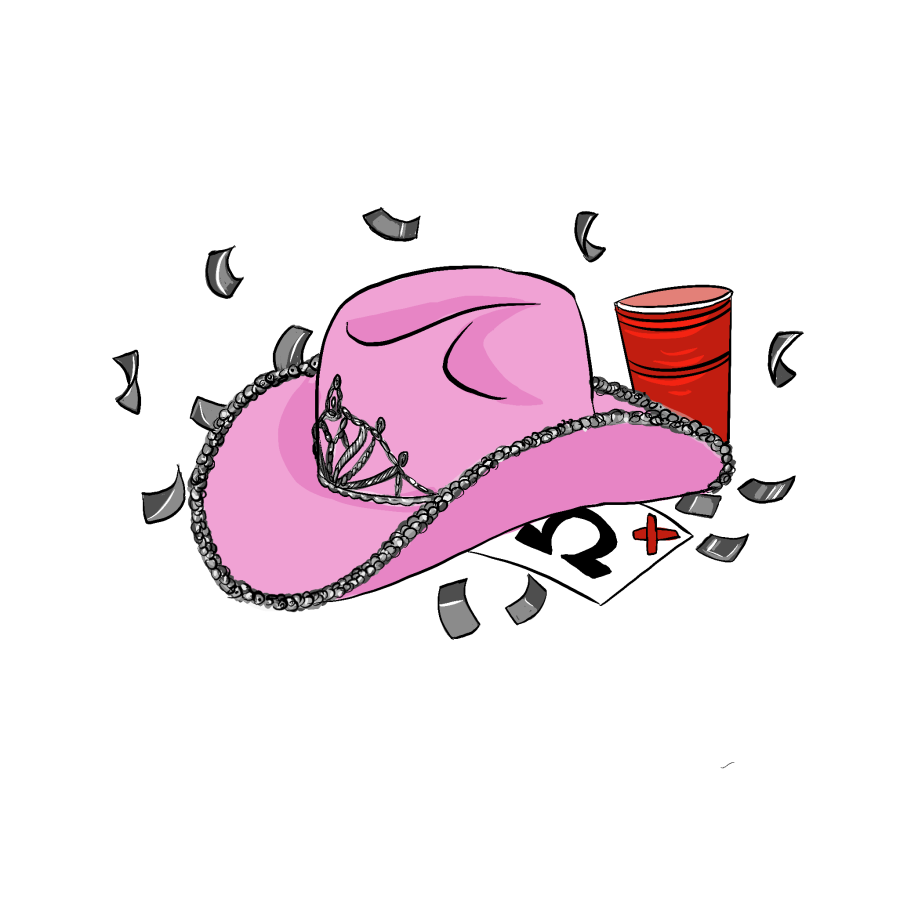The first fraternity system was founded in 1755 at the College of William and Mary as an exclusive secret society for students to gather outside of the classroom. While no longer secret, fraternities have maintained their exclusivity, now taking pride in it along with their sister system, sororities.
However, Greek life has changed drastically since its founding, with sororities and fraternities now adopting hierarchical systems that glamorize conformity instead of academic achievement.
At a first glance, joining a sorority or fraternity seems like a great way to surround yourself with people who share similar values and ideals. But Greek life is problematic.
It exacerbates discrimination on the basis of race, sex and socioeconomic class, and encourages sexual violence and misogyny. Systemic reforms should have been made to this system years ago.
Greek life has always lacked diversity. White students make up over 70% of all members. And unsurprisingly, Greek life at the University of Alabama is one of the most problematic in the country.
One African American student in this system was salutatorian of her class and graduated with a 4.3 GPA. She didn’t receive a single bid for any of the 16 most prestigious sororities on campus. She never stood a chance against her white competition, no matter how perfect her candidacy.
On top of this, socioeconomic class and membership fees prove to be another factor to making Greek life more exclusive. A Princeton study concluded that 95% of the members of college sororities or fraternities came from the wealthiest quarter of America. Only 5% came from lower to middle class families.
This creates an even greater divide on campuses, by only having the richest, most privileged members in Greek life. In addition to their social power, they also have the ability to use costs as a filter to separate those on different levels of the socioeconomic ladder.
Possibly the the most well-known issue with Greek life is the rape culture and obscenely high numbers of sexual assault cases within fraternities. Fraternity members are 300% more likely to commit rape, and sorority members are 74% more likely to experience sexual assault on campus compared to women who are not in sororities.
This issue springs from the reality that fraternity culture is closely intertwined with toxic masculinity and alcohol and drug abuse, and hazing challenges encourage members to spiral into a continuous cycle of lewd behavior, such as hosting sex contests.
Members of Cornell University’s Zeta Beta Tau, for example, where they were encouraged to have sexual intercourse with as many unsuspecting women as possible, and the heavier the woman, the more points they would receive. This was dubbed the “pig roast” in reference to the women’s weights. Fraternities act as a place for men to denigrate marginalized communities, and the “rich white guy stereotype” really shines through.
Those involved in Greek life continue to see the benefits even after graduation. Various studies and research have established that Greek life alumni go on to receive significantly more opportunities in terms of careers and social networks. It has been found that 76% of U.S. senators and 85% of Supreme Court justices since 1910 have been alumni of fraternities and sororities. Greek life ensures that the rich stay rich, and the poor stay poor.
Fortunately, the problematic nature of Greek life has started to surface, and the number of students joining fraternities and sororities has decreased significantly. At Vanderbilt University, the percentage of women in sororities has gone from 55.9% in 2013, to 35% in 2019. And in some places students have introduced petitions to ban Greek life altogether on campuses.
For example, “Abolish Greek Life” is a movement that was started to ban sororities and fraternities, and gained popularity at multiple universities.
It may seem like Greek life and its toxicity and exclusivity is an insignificant problem in comparison to other issues within the U.S. However, Greek life is only furthering a grander issue, by using and promoting injustice, which is exactly what this country was founded on.
University students, which includes Greek life alumni, feed directly to society, where many alumni will go into jobs regarding politics, business, economy, where they will inherently have the power to shape our society, therefore continuing the endless and vicious cycle of racial and socioeconomic disparity.
Abolishing Greek life would be a step in the right direction, but it’s easier said than done because there are still plenty of people who want to be a part of Greek life and well-connected alumni who will do anything to keep the system alive.
But if Greek life is going to survive on college campuses, major reforms are necessary, and those in power must work to eliminate systemic issues such as racism, classism and rape culture by fighting the establishment that was built upon discrimination.



One Wise Woman • Mar 28, 2022 at 6:08 am
This was a brilliant article which sets the foundation for the prohibition of Greek Life on college campuses. However, don’t be fooled because that same culture has infiltrated the military as well as civil servants in the government. When loyalties become compromised due to a social group affiliation, security of all citizens are threatened. Please continue to write on this topic and do not limit yourself to only White Greek Culture. As a woman of color who was not white enough or black enough for either, the Divine 9 is just as bad as the white Greek culture. They all have existed to do harm to the poor and disabled who try to get ahead.